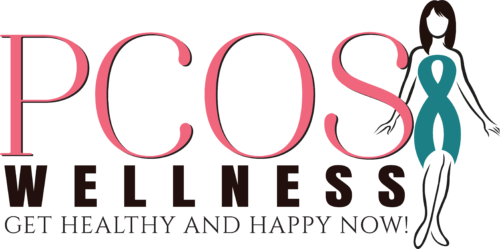I bet you're wondering.
"Now what?"
You’re probably feeling any number of emotions right now. I get it. I was too when I received my pcos diagnosis. But, information is power—this is the first thing to remember. The more you learn about PCOS and the more you pay attention to your own body and emotions, the more you’ll be able to fine-tune your care.
Important First Steps to Take Wellness into Your Own Hands
1. GET ANSWERS
First things first. You need to make sure that you have an understanding of how PCOS works and make sure you’re getting proper care from not just your primary doctor, but several specialists. These can include a gynecologist, a fertility specialist, an endocrinologist, an internist, a cardiologist, a dermatologist, a nutritionist, and—one not to be overlooked—a psychologist.
2. IMPROVE YOUR DIET
Next, you’ll want to get a handle on your diet and relationship with food as soon as you can to keep your insulin levels at a manageable level and help maintain your weight. This doesn’t mean that you can’t enjoy what you eat—food is one of life’s great pleasures—but it does mean you need to be disciplined. PCOS patients have specific dietary and nutritional needs for hormone regulation, plus what you put into your body also affects how you feel. And, you deserve to feel good.
3. GET MOVING
Exercise is a big piece that goes hand in hand with diet. I want to encourage you to get moving in whatever way is enjoyable to you. Yoga, running, salsa lessons, tennis, swimming…. If it feels like play, you’re more likely to stick with it—and sticking with it is key. Regular exercise bears tremendous influence on our hormone levels, our appetites, our energy levels, our quality of sleep and our overall mood and perception of ourselves. It helps the body to process and burn off stress, which is a really powerful way of beating depression or easing the pressure of trying to get pregnant, for example. Bottom line: exercise improves our quality of life.
I bet you're wondering.
"Now what?"
You’re probably feeling any number of emotions right now. I get it. I was too when I received my pcos diagnosis. But, information is power—this is the first thing to remember. The more you learn about PCOS and the more you pay attention to your own body and emotions, the more you’ll be able to fine-tune your care.
Important First Steps to Take Wellness into Your Own Hands
1. GET ANSWERS
First things first. You need to make sure that you have an understanding of how PCOS works and make sure you’re getting proper care from not just your primary doctor, but several specialists. These can include a gynecologist, a fertility specialist, an endocrinologist, an internist, a cardiologist, a dermatologist, a nutritionist, and—one not to be overlooked—a psychologist.
2. IMPROVE YOUR DIET
Next, you’ll want to get a handle on your diet and relationship with food as soon as you can to keep your insulin levels at a manageable level and help maintain your weight. This doesn’t mean that you can’t enjoy what you eat—food is one of life’s great pleasures—but it does mean you need to be disciplined. PCOS patients have specific dietary and nutritional needs for hormone regulation, plus what you put into your body also affects how you feel. And, you deserve to feel good.
3. GET MOVING
Exercise is a big piece that goes hand in hand with diet. I want to encourage you to get moving in whatever way is enjoyable to you. Yoga, running, salsa lessons, tennis, swimming…. If it feels like play, you’re more likely to stick with it—and sticking with it is key. Regular exercise bears tremendous influence on our hormone levels, our appetites, our energy levels, our quality of sleep and our overall mood and perception of ourselves. It helps the body to process and burn off stress, which is a really powerful way of beating depression or easing the pressure of trying to get pregnant, for example. Bottom line: exercise improves our quality of life.
4. SHARPEN INNER SELF AWARENESS
And there’s one more really important thing I want you to do. I want you to take care of your mental health. PCOS patients are at higher risk for depression, anxiety, eating disorders, and body dysmorphia. But it’s not just that. It’s about you and your life. PCOS doesn’t need to get in the way of your goals or your happiness. Connect with others who can relate to what you’re going through. Talk with a friend. Find a good therapist or support group. Learn to advocate for yourself. Design the life you love. And know that I am here.
4. SHARPEN INNER SELF AWARENESS
And there’s one more really important thing I want you to do. I want you to take care of your mental health. PCOS patients are at higher risk for depression, anxiety, eating disorders, and body dysmorphia. But it’s not just that. It’s about you and your life. PCOS doesn’t need to get in the way of your goals or your happiness. Connect with others who can relate to what you’re going through. Talk with a friend. Find a good therapist or support group. Learn to advocate for yourself. Design the life you love. And know that I am here.
